|
A lot of parents want their child to do piano exams. I have two really important questions for you: 1) Why do you want your child to learn the piano? 2) Why does your child want to learn the piano? I wish I could have your answers before I continue writing this post, however I'll make an assumption* that you want your child:
* based on goals nearly always expressed whenever I receive a new enquiry I'll also assume your child wants to learn because he or she likes / loves music and really wants to play an instrument. I think it's unlikely you want your child to learn because you want him or her to get onto an exam treadmill where the sole purpose of playing an instrument becomes passing exams that get harder and harder and, very sadly, can have the opposite effect of what you're looking for for your child. So now we have a problem. Much instrumental tuition revolves around exams because they really are one of the only absolute ways of measuring progress. This means that parents also become exam focused because it is the only way they have been told progress can be measured, and doesn't everyone know that if you learn an instrument you 'have' to take exams. But things don't have to be like this. Following exam syllabi is very different to delivering a rounded curriculum and cannot possibly be a substitute. Even Ofsted has finally come around to the view that good exam results 'do not always mean children have received the subject knowledge they need' and the focus on exams is at the expense of 'rich and full knowledge'. Read the full article here. Children who learn using an exam focused approach often find they do not enjoy their learning, it is hard and they do not have a foundation on which to tackle harder and harder pieces. They often give up around Grade 3 or so because they just don't have the right musical foundation in place. If they are lucky enough to want to continue they tend to develop the opinion that, once they have reached Grade 8, their learning is complete and they do not need to play anymore. Rather, Grade 8 is just the start - this is when the door opens to most of the truly wonderful piano repertoire. Incidentally, I was this student. I did not have a good musical foundation, I found piano hard and would only practise for exams. Once I reached Grade 8 at age 16 I felt I was pretty much done. Fortunately I eventually fell in love with the piano and especially teaching the piano. I did course after course and practised a lot to become the piano teacher I wanted to be. I teach piano so that children can have the joyful, rich, musical experience that I did not have. Surrey Music School love students love playing piano, making music and their piano lessons, they come full of excitement for each lesson and leave full of joy. So let's return to your goals for your child.....Surrey Music School provides a a well structured curriculum where progress is clear and many areas, including creativity and self expression are developed (not just reading music and passing exams!). Teachers can also add to and adapt the curriculum so it meets additional goals they or their students may have. Exams have their place and are very useful formal benchmarks for measuring progress, however they must not become the focal point of instrumental tuition because this does not lead to the enjoyment, rounded development and the lifelong love of music you want for your child. At Surrey Music School we use exams judiciously so that they become special occasions to mark achievement and not just run of the mill yearly activities. If you would like your child to learn piano within a structured curriculum, in a group or 1:1 environment, where the focus is on developing a love of music and all round musical skills through piano playing then please do get in touch.
1 Comment
Last week's blog discussed the benefits of music teaching but raised the fact that the benefits do not occur when the teaching is unstructured and poor quality. Read on to find out what bad music teaching looks like and discover what makes good music teaching.
The Kodaly approach to music teaching is very similar to how children learn to speak. As babies they listen and begin to explore the sounds they can make. As they grow they start imitating words they hear and finally they begin to put words together to make their own sentences. Imagine if they were not allowed to make any sounds until they first learned to read! It sounds ridiculous however this is what 'traditional' music teaching expects. With no musical foundation children are expected to interpret musical symbols - is it any wonder that they struggle and don't enjoy it. What did your music lessons look like? Did you learn through songs and games, developing your musical skills away from your instrument or were you a victim of traditional teaching and expected to somehow 'know' all these things without being taught? Next week's blog looks at the importance of teaching musical skills and concepts within a framework; so that the learning is structured and progress can be measured other than using exams. In the meantime if you're interested in reading more about the damage that traditional piano teaching causes why not check out this excellent article 'How Traditional Piano Lessons Cripple Our Children'.
Listening to and making music is a wonderful experience, with many benefits. Read on to discover them and learn about the health warning that can negate the benefits. a) Music reshapes the brain
b) Musical training helps progress 'Children who experience musical training have an advantage across all subjects except sport'
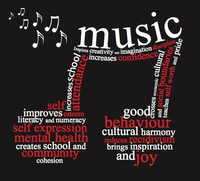 c) Music has a direct link to our emotions ‘It reaches the parts of the brain other things can’t do’.
 But, what about the teaching? All the benefits come with a vital health warning: 'If the quality of music tuition is poor and unstructured there is no impact' Even worse, the impact of poor music tuition goes even deeper and may have: 'negative outcomes' Next week we describe what good music teaching looks like to help you find a teacher and approach that will deliver the benefits music can bring when done well. What has your experience been of music lessons? |
Caroline BlountDirector of Surrey Music School. Archives
January 2024
Categories
All
|
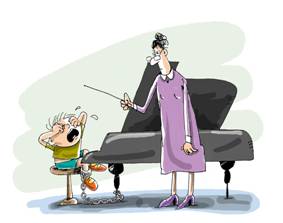
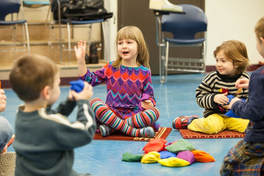
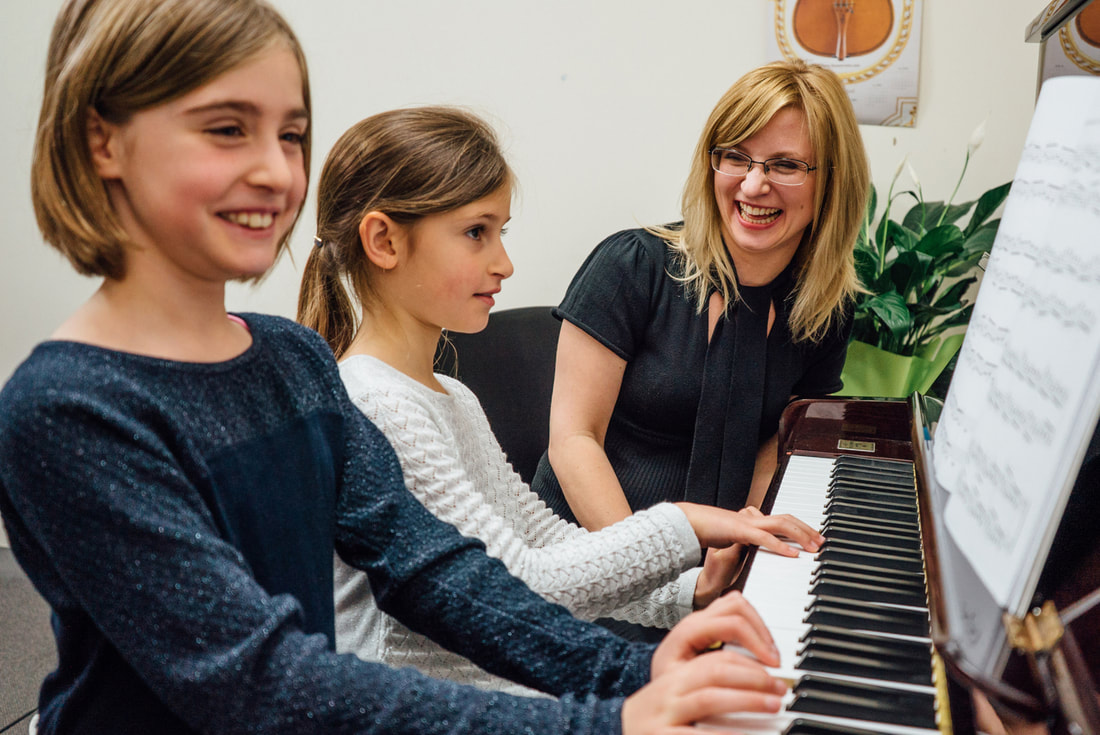
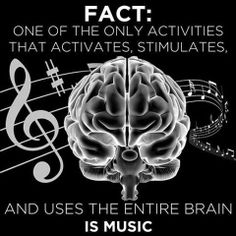

 RSS Feed
RSS Feed